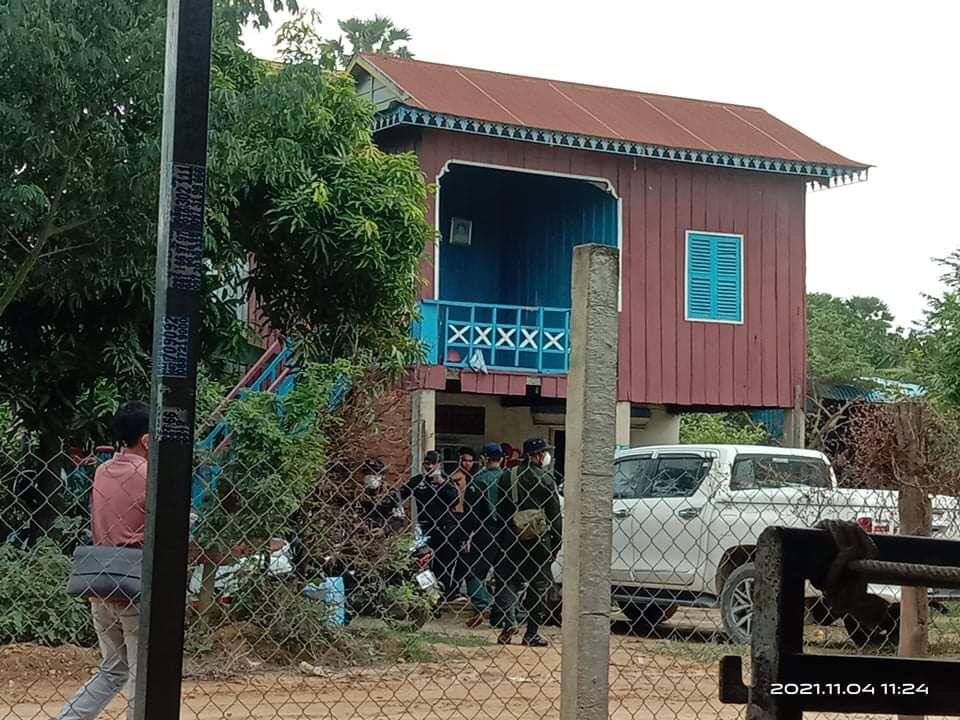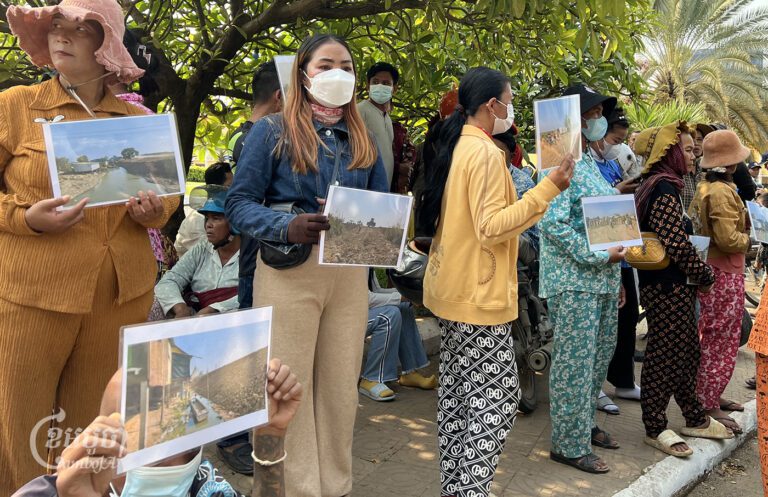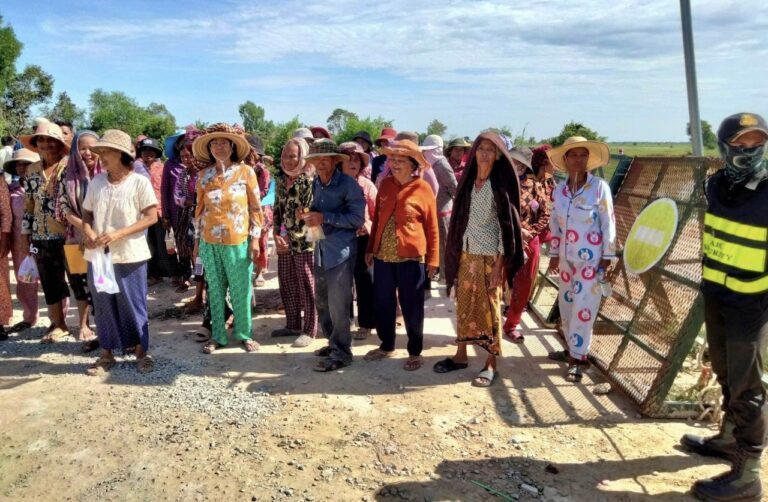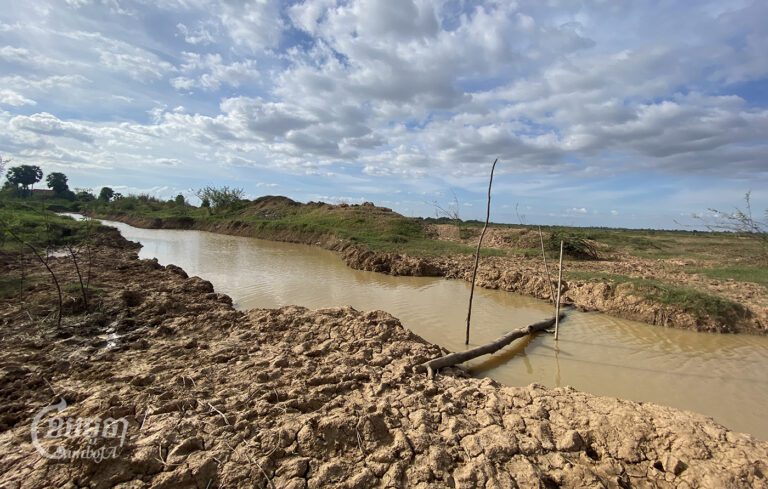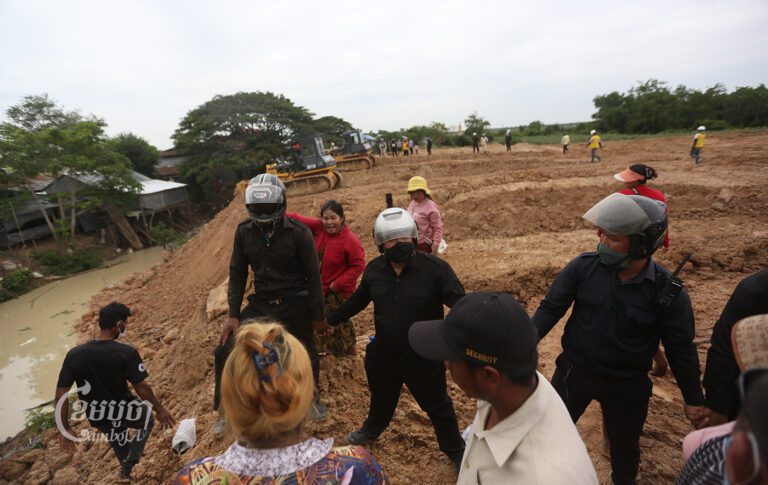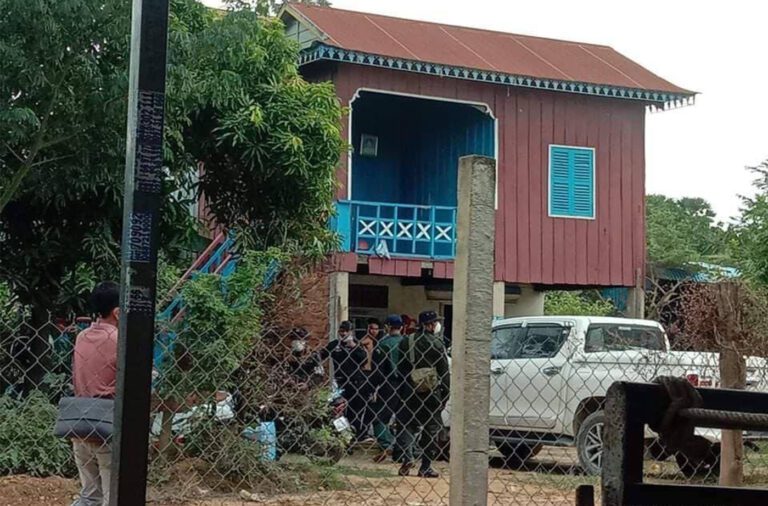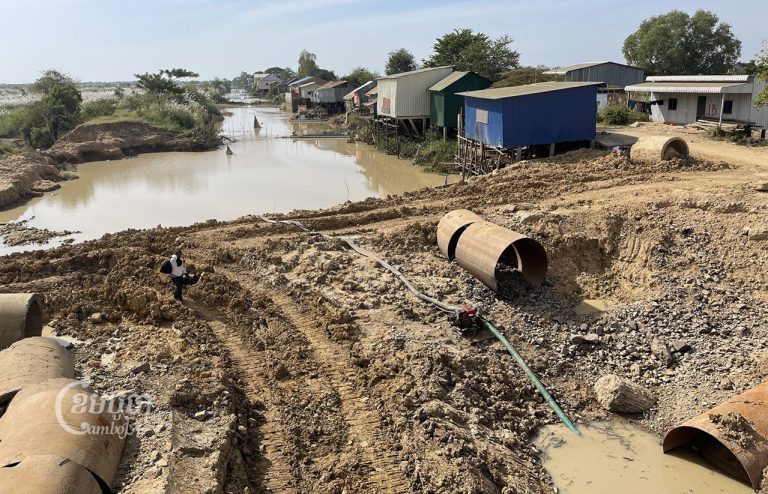Local authorities and the corporation behind the new airport project in Kandal province have begun measuring people’s houses for compensation despite the fact that families are still waiting for compensation for farmland that has been cleared to make way for the development.
A letter issued by the Kandal Stung district governor dated on November 3 announced that 66 houses in Kampong Talong village, Kandal Stung district have been affected by the mega-project. The district governor ordered local authorities to work together with the Overseas Cambodia Investment Corp (OCIC), the company behind the development, to collect data on affected families with the final aim of compensating them for their loss.
But families who have so far refused what they see as inadequate compensation for their cleared farmland are concerned about what this new step means for their existing dispute. On Thursday, thirty villagers met with the district governor to help facilitate a petition to Prime Minister Hun Sen seeking higher compensation.
Nai Phorn, a villager whose home is among the 66 affected houses, said that his 0.70-hectare plot of farmland has already been cleared to make way for an airport runway without any compensation. He told CamboJA that he believed authorities should address one case before moving on to another.
“Shelter is our life, and if I lose the house I will start again empty-handed because I don’t have another plot of land elsewhere,” he said. He said that he was only asking for reasonable compensation to allow his family to buy farmland elsewhere.
Phorn said that he was afraid the community would meet the same fate as people who have been affected by the Phnom Penh-Sihanoukville Expressway project, where houses were destroyed before compensation was made. On October 27, about 30 families were forcibly evicted with little advance notice to make way for the Phnom Penh-Sihanoukville expressway.
Not long after being told to leave, the residents watched a force of some 200 workers and officials demolish their houses along Win-Win Boulevard in Pur Senchey district’s Samroang Kroam commune.
“My farmland was completely cleared without a solution being found yet and now it comes to the house. We are worried that if we do not agree, they will surround the whole village and destroy our house,” Phorn said. “We cannot do anything, because we are living under their power.”
He said district authorities just informed villagers a day before they came to measure people’s houses and that so far, people don’t know how they would offer the compensation over the affected houses. However, he said he does not expect to receive a reasonable price for his house.
Another villager, Chhon Kali, said that authorities and representatives from the company came to inspect and measure people’s homes without any prior discussion with villagers.
Kali, who has thus far refused the company’s offer of compensation for his farmland, which has been affected by the runway’s construction, said that one of the local authorities had unofficially told him that the government will offer $270 per square meter for a brick house, while the potential compensation for a wooden house remains unknown.
“They have abused us again and again; they have to solve the ongoing farmland issue first before they move to offer another compensation that people cannot accept,” he said.
He said that while the company had promised to offer locals another plot of land in a new location in exchange for their lost plot, villagers had not received any information about where this land would be.
“We don’t believe the company because they always cheat people, we lose confidence in the company,” he said.
Villagers are not allowed to enter their farmland, which has been cleared since September. Instead, they now have to rely on their land titles to identify the location of their now-destroyed farmland.
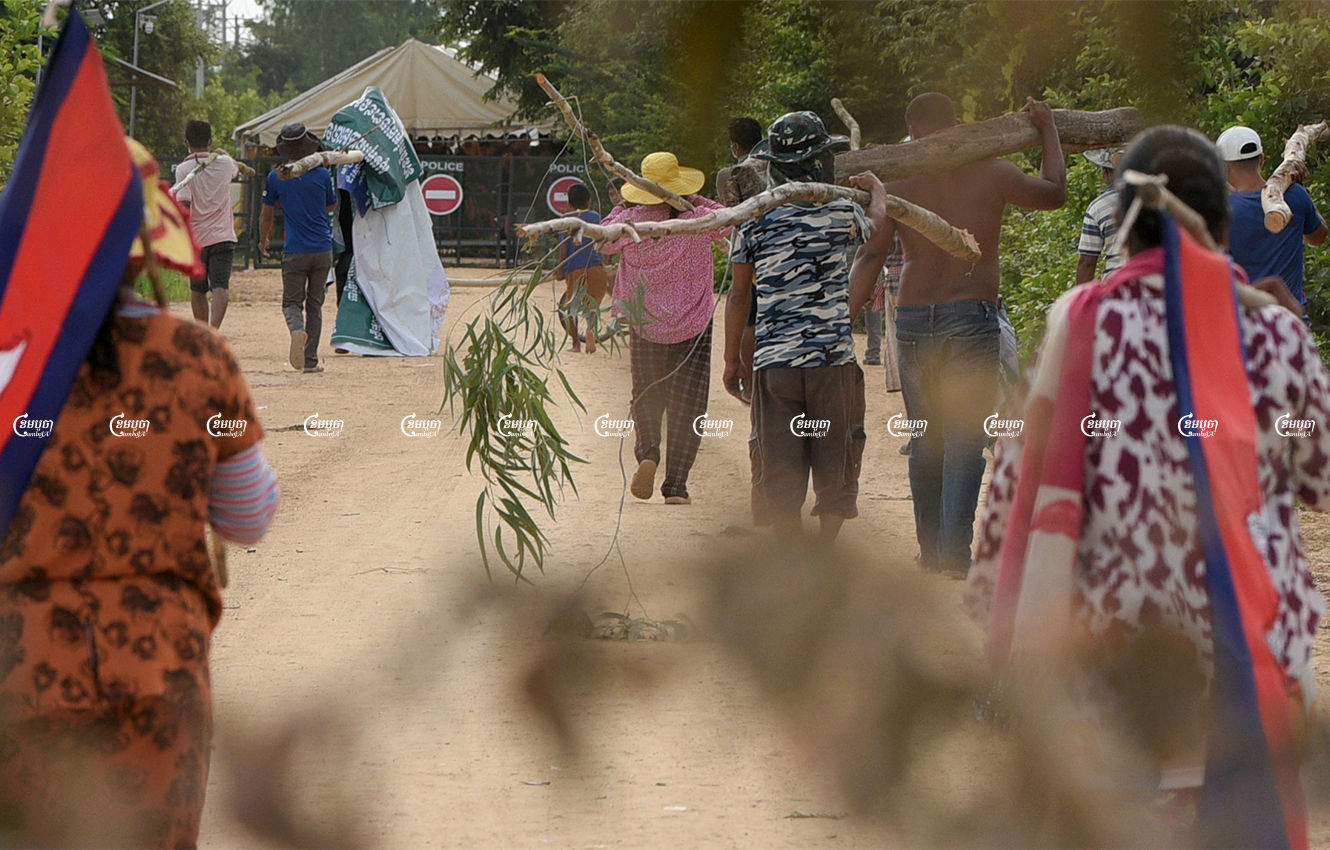
More than 100 people in Boeung Khyang commune protested in September after local authorities blocked the road leading to their farms and allowed the company to start clearing their farmland to make way for the new airport — despite the fact that many families are still seeking fair compensation for their property and left nine people have been charged of intentional violence with aggravating circumstances, obstructing a public official with aggravating circumstances and incitement to commit a felony.
Kandal Stung district governor Ouch Sao Voeun told CamboJA that for the second round of compensation, the relevant authorities have been instructed to inspect and collect data to evaluate the people’s housing price.
“I don’t know how much [the government] will offer people and the local authorities can only facilitate to make the valuation process go smoothly,” he said. He added that the first step of the survey is to collect measurements on people’s properties such as the size of the construction and the crops on the land.
He said after completing the valuation, authorities will discuss with people about compensation.
“We will not seize their houses quickly anyway,” he said. “People don’t understand about the process, and we already explained them. This time the authorities will thoroughly and carefully evaluate the properties to ensure that impact will not be large.”
He said that the valuation will be based on the actual market price of materials and the cost of the construction.
Kok Say, who is in charge of land acquisition for the new airport, told CamboJA that the company was still waiting to pay people the money in compensation for their affected farmland.
“We are here waiting to pay them and for those who still refuse, it’s their right, but the company will keep paying them the price [$8 per square meters],” he said. Say refused to offer details of the potential compensation for people’s houses, saying the price will be based on the state’s principle.
Soeng Senkaruna, a senior investigator at rights group Adhoc, said that before making any development project, the state should thoroughly evaluate the impact on the environment and local people and provide a proper solution.
“I just noticed that while the affected farmland has not yet been solved, and now comes the home evaluation, which makes people more concerned about their living,” he said. “The authorities should clear and finish the farmland dispute first before moving on to the next compensation.”
He said the compensation should not be made through threats and force.
Prime Minister Hun Sen on Monday urged authorities to reach out-of-court settlements for land disputes and to continue registering land titles for people to secure their ownership rights.
According to Minister for Land Management Chea Sophara, the ministry has so far issued 6.3 million land titles across the country and aims to have issued 7 million titles by 2023. Sophara also said the ministry recognized 3,184 ongoing land disputes and stated 10,634 other disputes have already been solved.
Toun Vannak, whose house and farmland have been directly affected by the airport project, has still refused the compensation even though his farmland has been cleared beyond recognition.
“It is very unjust for villagers that suffer again and again,” he said. “Villagers’ lives depend on farming, but I have nothing to do. I am now almost unable to earn money to buy food,”
Vannak said he wants the authorities to hold a meeting with the villagers so that people would have daily updates about the plan.
“While the settlement of farmland is not over yet, why do they move to another compensation?” he said. “People do not oppose the development, but we want the solution to be transparent and acceptable.”
Hundreds of families have been locked in disputes over the $1.5 billion airport project developed by the OCIC, which is owned by the well-connected Oknha Pung Kheav Se. The conflict has now lasted for more than three years. (Additional reporting by Sam Sopich)


